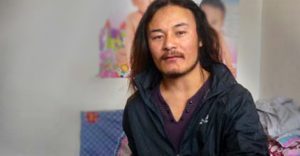| [9 March 2016] Tibet Society’s press release on the eve of the 57th anniversary of the Tibetan National Uprising.
David Cameron called upon to meet Dalai Lama Governments urged to work multi-laterally to solve Tibet crisis [9 March 2016, London] On the eve of the 57th anniversary of the Tibetan National Uprising [1], Tibet Society appeals to the UK and international governments to stand by the principles of freedom and democracy and urge China to seek a peaceful resolution to the Tibet crisis. Prime Minister David Cameron should also set an example and meet with the Dalai Lama and representatives of the Tibetan government in exile to help find a path forward. Norman Baker, President of Tibet Society, said, “How long must six million people suffer under one of the world’s most brutal regimes before the international community stands up and says enough is enough? Bi-lateral dialogues with China have failed to produce any benefit for the Tibetan people. Tibet is currently only second to Syria in terms of being the most repressed society in the world [2]. It is time for international governments to come together and demand China peacefully resolves the Tibet issue.” Riki Hyde-Chambers, Chairman of Tibet Society, said, “The UK government regularly calls on China to negotiate with the Dalai Lama, yet the Prime Minister and government officials refuse to meet him so as not to upset China. This is pure hypocrisy. How can you call on China to meet the Dalai Lama if you yourself won’t meet him? The UK government needs to have the strength of its convictions.”
Despite mass surveillance, a large security presence and harsh penalties for dissent, Tibetans continue to protest against China’s occupation. There are currently over 600 known Tibetan political prisoners in Chinese jails. Since 2009, over 140 Tibetans have self-immolated in protest against China’s occupation of Tibet. In recent months, there has been an increase in the number of solo peaceful protests in Tibet, where individuals express themselves by walking down a main street shouting slogans and often holding a portrait of the Dalai Lama. Such protestors face harsh prison sentences and are risk of torture whilst in detention. Recent cases include: ► On 4 March 2016, Manga, a woman in her thirties, undertook a solo protest in Ngaba, eastern Tibet by walking down the main street holding aloft a photo of the Dalai Lama. She was immediately detained by Chinese police. Her current condition and whereabouts are unknown. [3] ► On 29 February 2016, Kalsang Wangdu, an 18 year-old monk died after self-immolating in eastern Tibet. During his protest, Kalsang called for “Tibet’s complete independence” and the long life of the Dalai Lama. [4] ► On 17 February 2016, Tibetan blogger Druklo (pen-name Shokjang) was sentenced to three years’ imprisonment after writing articles criticising Chinese government policies. [5] ► In late 2015, two teenage monks were jailed for up to four years for undertaking solo protests in Ngaba. Both carried photos of the Dalai Lama and shouted slogans calling for Tibetan freedom. [6] ► On 12 July 2015, revered Tibetan leader Tenzin Delek Rinpoche died in prison, having been sentenced on false charges, subjected to torture and denied medical treatment. [7] end Contacts: Notes: The Tibetan National Uprising is commemorated annually by exiled Tibetans and Tibet supporters, with events remembering its victims and those of the ongoing occupation, as well as calling for an end to China’s oppressive policies in Tibet and for action from the international community. For events in London on 10 & 12 March: www.tibetsociety.com/content/view/587 [2] According to Freedom House, a US-based NGO, Tibet is ranked 208th out of 209 countries and regions in terms of freedom and human rights. Syria was 209th. freedomhouse.org/report/freedom-world/freedom-world-2016 [3] Report by International Campaign for Tibet: www.savetibet.org/woman-makes-solo-protest-in-ngaba/ [4] Report by Tibet Society: www.tibetsociety.com/content/view/588 [5] Report by Tibet Society: www.tibetsociety.com/content/view/586 [6] Gendun Phuntsok, 18, was sentenced to four years imprisonment in late October 2015, following a peaceful protest on 8 March 2015 in Ngaba, Sichuan province. Lobsang Kalsang, 19, was sentenced to three and a half years on 2 November 2015, following a peaceful protest in Ngaba on 17 March 2015. [7] Report by Tibet Society: www.tibetsociety.com/content/view/551 end |
||||
|
|
||||
|
Tibet Society, the world’s first Tibet support group, was founded in 1959. Funded by its members, it has been working for over 50 years to seek justice for Tibet through parliamentary lobbying, campaigns and actions. Help keep Tibet alive by joining Tibet Society today. Annual membership £24; Family £36; Life £500.
|
||||



